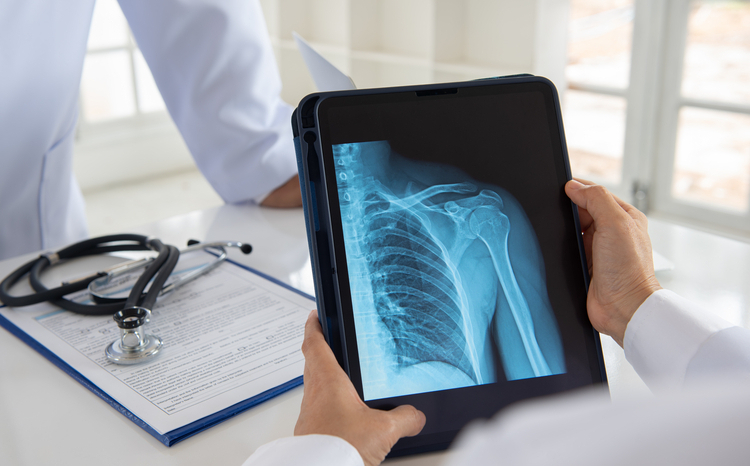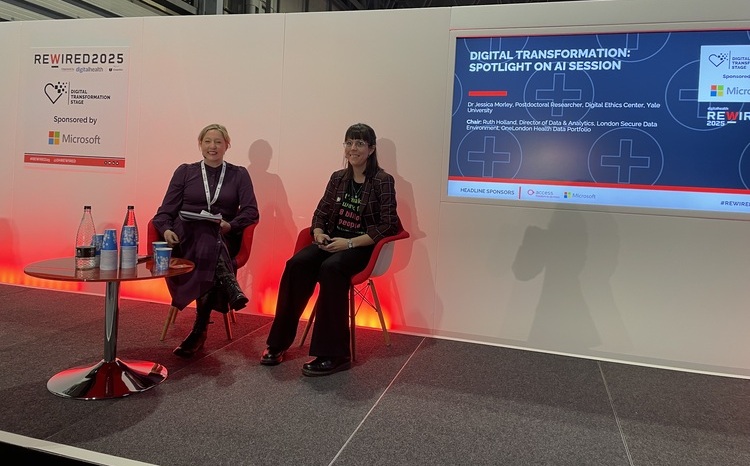NICE recommends use of AI to detect broken bones on X-rays
- 22 October 2024

- NICE has recommended that AI technologies should be used to help doctors detect broken bones on X-rays
- Draft guidance published on 22 October 2024 includes a recommendation allowing one of four AI tools to detect fractures on X-rays
- A consultation on the draft recommendations has begun and comments can be submitted via the NICE website until Tuesday 5 November 2024
The National Institute for Health and Care Excellence (NICE) has approved the use of four AI technologies to help doctors detect broken bones on X-rays.
Draft guidance, published on 22 October 2024, recommends TechCare Alert, BoneView, RBfracture or Rayvolve can be used in urgent care settings in England while further evidence is generated to demonstrate the technologies’ benefits in a real-world setting.
An independent NICE committee said that the AI tools can be used to detect fractures on X-rays in urgent care, in addition to a trained healthcare professional reviewing the X-ray.
The committee highlighted that the use of these technologies is considered low risk because the AI is not working in isolation and therefore it is unlikely that using the technologies will lead to an increase in unnecessary referrals to fracture clinics.
Mark Chapman, director of healthtech at NICE, said: “Every day across the NHS thousands of images are interpreted by expert radiologists and radiographers, but there is a high vacancy rate within these departments across the country and more support is needed to manage their workload.
“These AI technologies are safe to use and could spot fractures which humans might miss given the pressure and demands these professional groups work under.
“Using AI technology to help highly skilled professionals in urgent care centres to identify which of their patients has a fracture could potentially speed up diagnosis and reduce follow up appointments needed because of a fracture missed during an initial assessment.”
The NHS Long Term Plan noted that in England vacancy rates are 12.5% for radiologists and 15% for radiographers.
Clinical evidence suggests that the AI technologies may improve fracture detection on X-rays in urgent care, compared with just a professional reviewing on their own, without increasing the risk of incorrect diagnoses.
NICE said that using AI may help reduce variation in care across the country, reduce the number of fractures that are missed at initial presentation, and prevent further injury or harm to people during the time between the initial assessment and a decision on further treatment.
Missed fractures are the most common diagnostic error in the emergency department, with missed or delayed diagnosis of fractures on radiographs occurring in around 3% to 10% of cases.
A consultation on the draft recommendations opened on 22 October 2024 and comments can be submitted via the NICE website until 5 November 2024.
After the consultation, responses will be considered by the committee who may then alter their recommendations before final guidance is published on the NICE website, which is expected on 14 January 2025.
Meanwhile, in October 2024, science and technology secretary Peter Kyle announced the launch of a regulatory office, which will support the healthcare sector to deploy AI innovations safely.





